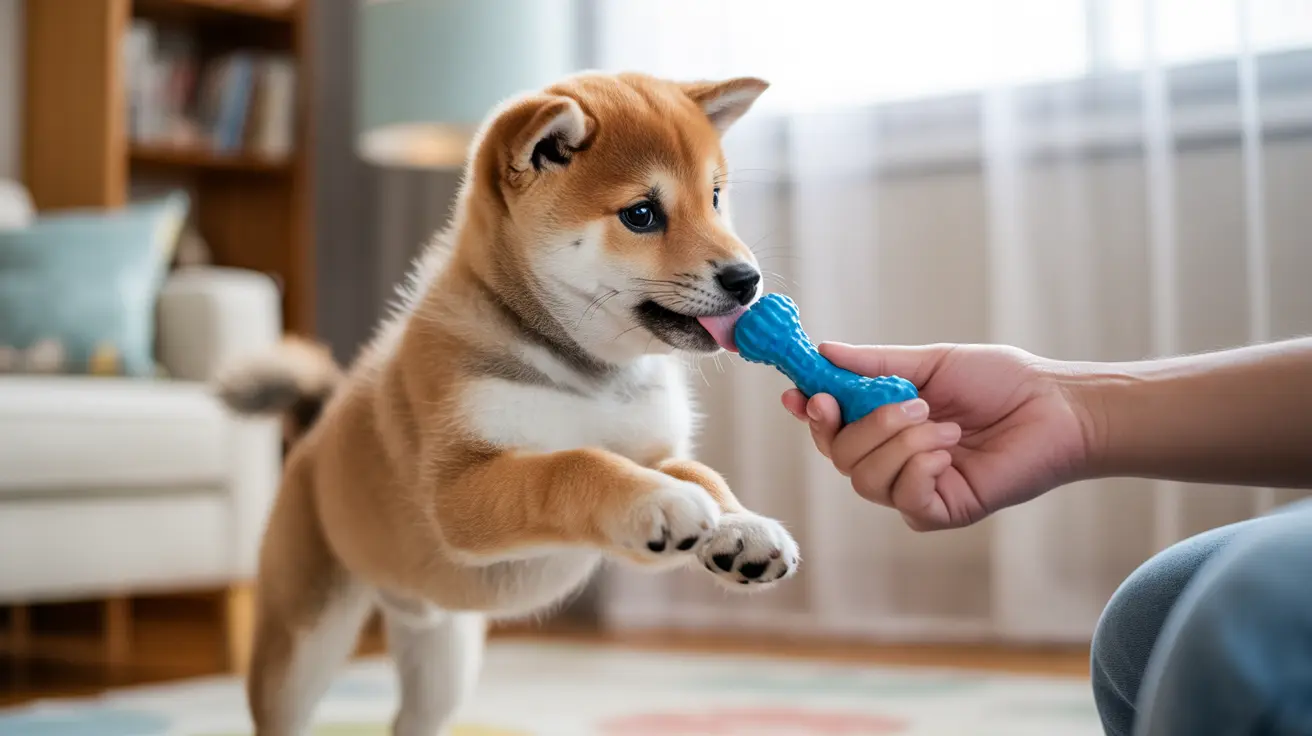If you're struggling with a dog that constantly licks you or themselves, you're not alone. Excessive licking in dogs can be both frustrating and concerning for pet owners. Understanding why this behavior occurs and how to address it effectively is crucial for both your dog's wellbeing and your peace of mind.
In this comprehensive guide, we'll explore the various causes of excessive licking and provide practical, proven solutions to help you manage this behavior. From medical concerns to behavioral modifications, we'll cover everything you need to know to help your furry friend develop healthier habits.
Understanding Why Dogs Lick Excessively
Dogs may develop excessive licking habits for various reasons, ranging from medical issues to behavioral patterns. Some dogs lick as a way to show affection or seek attention, while others may be responding to underlying health problems or anxiety.
Medical causes often include allergies, skin infections, gastrointestinal issues, or pain. Behavioral triggers can include stress, anxiety, boredom, or compulsive disorders. Understanding the root cause is essential for implementing effective solutions.
Medical Causes and Solutions
Before addressing excessive licking as a behavioral issue, it's crucial to rule out medical conditions. Common medical causes include:
- Allergies (environmental or food-related)
- Skin infections or hot spots
- Gastrointestinal problems
- Joint pain or discomfort
- Hormonal imbalances
If you suspect a medical issue, schedule a veterinary examination. Your vet can perform necessary tests and recommend appropriate treatments, which may include medications, special diets, or topical treatments.
Behavioral Training Techniques
Once medical issues are ruled out, focus on behavioral modification strategies:
- Redirect attention to toys or activities
- Use positive reinforcement when licking stops
- Teach the "leave it" command
- Provide mental stimulation through puzzle toys
- Establish consistent daily exercise routines
Remember that consistency is key when implementing these training techniques. All family members should follow the same approach to avoid sending mixed signals to your dog.
Environmental Management Strategies
Creating an environment that discourages excessive licking can be highly effective:
- Increase physical exercise opportunities
- Provide appropriate chew toys
- Use bitter-tasting deterrent sprays (vet-approved)
- Create a calming environment with regular routines
- Consider using anxiety-reducing products like pheromone diffusers
When to Seek Professional Help
If excessive licking persists despite your best efforts, don't hesitate to seek professional assistance. A certified animal behaviorist or veterinary specialist can provide personalized guidance and may recommend:
- Advanced behavior modification techniques
- Medication for anxiety or compulsive disorders
- Specialized training programs
- Additional medical testing if needed
Frequently Asked Questions
Why do dogs lick excessively, and what are the common causes of this behavior?
Dogs may lick excessively due to medical issues (allergies, pain, infections), anxiety, stress, boredom, or attention-seeking behavior. Some dogs also develop compulsive licking habits or lick as a self-soothing mechanism.
How can I stop my dog from licking themselves excessively?
Start by ruling out medical causes through a veterinary exam. Then, implement behavioral training, provide alternative activities, and ensure adequate exercise and mental stimulation. Consistency in training and positive reinforcement are essential.
What are some non-medical ways to prevent excessive licking in dogs?
Increase physical exercise, provide puzzle toys for mental stimulation, use positive reinforcement training, redirect attention to appropriate toys, and maintain a consistent daily routine. Ensuring your dog has enough environmental enrichment can significantly reduce excessive licking.
Can excessive licking in dogs be a sign of a medical issue, and if so, what conditions should I look out for?
Yes, excessive licking can indicate various medical conditions including allergies, skin infections, gastrointestinal problems, joint pain, and hormonal imbalances. Watch for signs like skin irritation, hair loss, changes in appetite, or other unusual behaviors.
Are there any specific products or supplements that can help reduce excessive licking in dogs due to anxiety or stress?
Several products can help, including calming supplements containing L-theanine or chamomile, anxiety wraps, pheromone diffusers, and specialized calming treats. Always consult with your veterinarian before starting any supplementation program.
Conclusion
While excessive licking can be challenging to address, a combination of medical attention, behavioral training, and environmental management can help resolve this issue. Remember to be patient and consistent in your approach, and don't hesitate to seek professional help if needed. With dedication and the right strategies, you can help your dog develop healthier habits and improve their quality of life.






